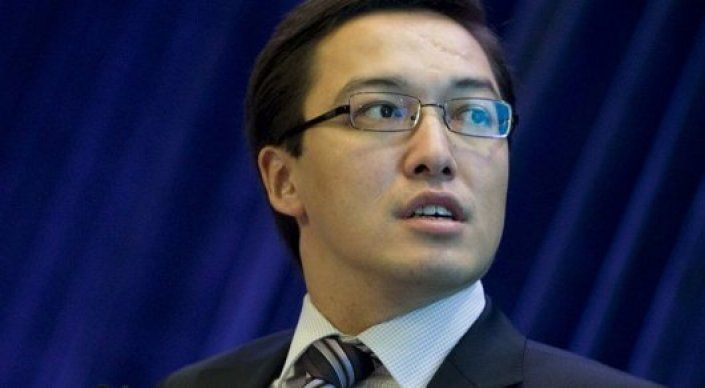 Governor of the National Bank of Kazakhstan Daniyar Akishev has commented on the regulator's plans to de-dollarize the Kazakh economy, Tengrinews reports citing the Kazakhstani TV channel KTK.
Governor of the National Bank of Kazakhstan Daniyar Akishev has commented on the regulator's plans to de-dollarize the Kazakh economy, Tengrinews reports citing the Kazakhstani TV channel KTK.
According to the central bank Governor, it is necessary to de-dollarize the Kazakh economy. “Kazakhstan is a sovereign country that pursues its own economic policies. We have to take measures to restore people's confidence in tenge [Kazakhstan's national currency], which is to be conducted through the creation of saving mechanisms. First of all, the profitability of the tenge instruments must be high so that it is profitable for people to keep their savings in tenge," Akishev said.
The financier called de-dollarization a painful process for the Kazakh economy. Apart from different psychological factors, there are many economic factors that hinder de-dollarization in Kazakhstan, he said.
Among the psychological factors that keep the level of dollarization of the economy high is people's reaction to the recent depreciation of the tenge. Akishev admitted that it is only natural that people try to protect their savings by buying foreign currency. However, currently the share of foreign currency deposits is extremely high throughout the banking system of Kazakhstan, constituting 80 percent of all individual deposits in the country. To reduce this figure, Akishev promised to reconsider the profitability ceiling of the deposits and other savings instruments in tenge.
Another psychological factor that prevents de-dollarization of the Kazakh economy is the habit to measure people's income and spending in dollars. “People are used to calculating their incomes in the foreign currency, regardless of what they spend their money on. … Especially, it applies to major assets: real estate, cars – they should be priced in tenge. Take real estate. Price formation in this market has historically been tied to the dollar. Currently, however, most of the materials used in construction – 80 percent of all construction materials - come from domestic producers. Thus, this asset is created without dollar, and so it really has little impact on its price formation," Akishev said.
As for the products that heavily depend on imports, Akishev did not object that prices for those products were affected by the tenge to dollar exchange rate. Still he insisted that prices for such products had to be denominated in tenge. “People need to get used to measuring the value of these assets in tenge," he said. The head of the regulator emphasized that it was important that prices for every product in the country was denominated in its national currency. Therefore, Akishev argued, one of the measures to de-dollarize the Kazakh economy would be to toughen up the legislation to directly prohibit denomination of prices in foreign currencies. It also can be complemented by introducing strict mechanisms to punish those who break this rule.
The set of expected economic measures for de-dollarization of the national economy includes increasing interest rates on deposits in tenge. Currently, the interest rate on deposits in tenge is 10 percent, in dollars – 3 percent. The National Bank's plan is to increase the interest rate difference between the saving in tenge and dollars, and to increase the interest rate on deposits in tenge. However, he said there was no final decision made on whether the interest rate on dollar deposits would be lowered further down.
The plan to reduce the level of dollarization of the economy is sensitive to the overall economic situation in the world and in Kazakhstan. As the Governor noted that the government and the National Bank had to keep a close eye on Kazakhstan's dependence on oil prices to maneuver and ensure stability of the Kazakh economy and maintain an appropriate level of inflation.
“I hope next year will be more favorable in terms of prospects for the oil market. It will allow us to plan our monetary policies for a longer term, and have a better understanding of how the exchange rate will develop, and what the size of our gold reserves will be. I would like to reiterate our commitment to the policy of free exchange rate," Akishev concluded.
Source: Tengrinews
 В Атырау -10
В Атырау -10